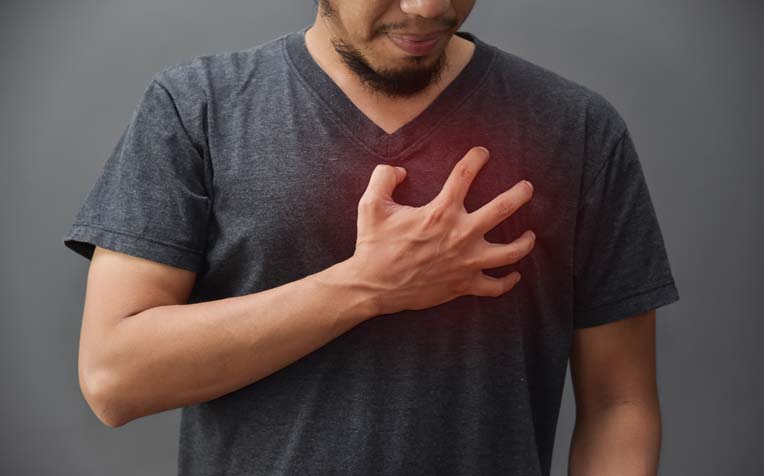
Heart failure can affect one or both sides of the heart.
Heart failure means that your heart functions below par and is thus unable to pump enough blood for the body’s needs. It is a serious condition since all the organs, tissues, and cells in your body require proper blood flow to accomplish their tasks. Heart failure can affect one or both sides of the heart.
“In heart failure, because the heart isn’t performing its job well, fluid builds up in the lungs and patients feel breathless. This can be so severe that patients cannot carry out their usual activities of daily living, or feels like he or she is drowning,” explains Professor Carolyn Lam, Senior Consultant, Department of Cardiology, National Heart Centre Singapore (NHCS), a member of the SingHealth group.
Common symptoms of heart failure include:
Shortness of breath during rest or exertion
Frequent coughing
Sudden weight gain
Swollen feet, ankles, legs
Abdominal swelling / pain
Dizziness / fainting
Palpitations
Fatigue
What are the causes and risk factors of heart failure?
A variety of heart conditions can damage or weaken the heart, and lead to heart failure. These include:
- Coronary artery disease / heart attack (myocardial infarction)
- Hypertension (high blood pressure)
- Heart valve disease
- Congenital heart disease
- Abnormal heart rhythms
-
Myocarditis (Inflammation of the heart muscle)
Other medical conditions which can cause heart failure include:
- Diabetes
- Obesity
- Sleep apnoea (difficulties with breathing during sleep)
- Thyroid disease (hyperthyroidism, hypothyroidism)
- HIV infection
- Inherited cardiomyopathy
“Excessive consumption of alcohol can also increase your risk of heart failure,” says Prof Carolyn Lam.
Did you know heart failure can lead to pleural effusion? To know more about this condition and how it is treated, watch these videoes!
Part 1
Part 2
How is heart failure diagnosed?
Your doctor will review your medical history and your symptoms, perform a physical exam, and conduct tests to diagnose heart failure. The tests may include a chest X-ray, an electrocardiogram (ECG) and cardiac catheterisation, which involves threading to your heart a long, thin, flexible tube through a blood vessel in your arm, groin or neck.
Read on for
tips to prevent heart failure.
Ref: N18
Check out other articles on heart health:
How Does a Heart Attack Happen?
Heart Attack Symptoms in Women Differ from Men. How?
How to Survive a Heart Attack When Alone
Sudden Chest Pains That Can Kill
When Are Heart Palpitations (Fast Heart Beats) Serious?
How a Flu-Like Infection Can Affect the Heart
Heart Murmurs: Causes, Types and Safety Tips


















 Get it on Google Play
Get it on Google Play